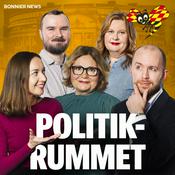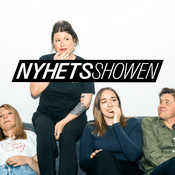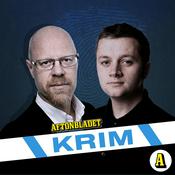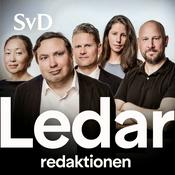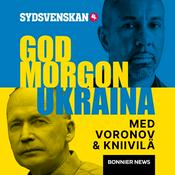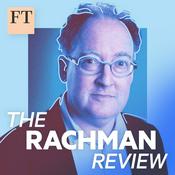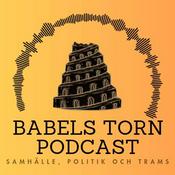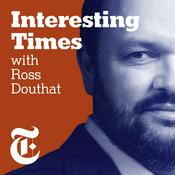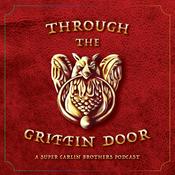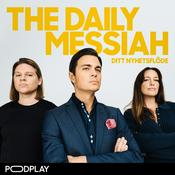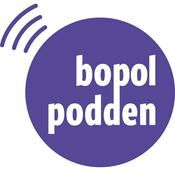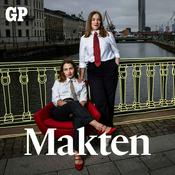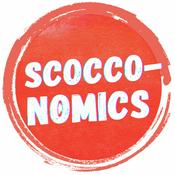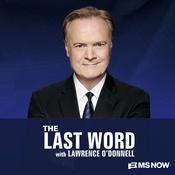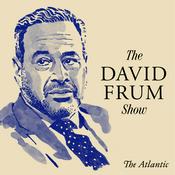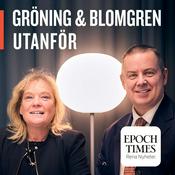531 avsnitt
How Cellanome Is Changing the Way We Study Cell Function with Matthew Spitzer and Pier Federico Gherardini
2026-1-29 | 23 min.For today’s show, we return to discussing the exciting new Cellanome platform. Joining Theral are Pier Federico Gherardini, VP of Computational Biology at Cellanome, and Matthew Spitzer, Associate Professor at University of California, San Francisco, whose lab is using Cellanome’s CellCage technology to study immune cells in dynamic, interactive contexts.
0:00 From static snapshots to observing cell function in real time
4:45 Pairing phenotype with function like we never could before
7:30 Can see cell-cell interaction
19:40 Early applications
Rather than relying on static single-cell snapshots, the Cellanome platform enables longitudinal observation of live cells—tracking division, interaction, and function over time—before pairing those behaviors with transcriptomic and molecular readouts. As Gherardini explains, “This creates essentially a new data type where you observe cells over time… and then you can pair all of that functional information with the molecular readouts that you get from sequencing.”
For Spitzer, that shift fundamentally changes what can be known. Traditional approaches often force scientists to infer function indirectly, correlating phenotype measured in one experiment with behavior measured in another. With CellCage, his lab can finally measure both in the same individual cell.
“Now we have measured the function of the cell and the phenotype for the same exact individual cell,” Spitzer says, “and this allows us to really understand how those core characteristics are linked in a much more detailed way.”
For Spitzer, a major advance comes from observing cell–cell interactions as they unfold. Where previous methods could show proximity in a tissue section, they could not reveal outcomes. Using Cellanome, Spitzer’s team can now watch whether a T cell activated by a dendritic cell actually proliferates, produces effector molecules, or kills a tumor cell—and then trace those outcomes back to specific molecular programs. This has already revealed surprising heterogeneity within supposedly uniform cell populations, identifying rare but highly potent immune cells that would have been invisible in bulk assays.
Looking ahead, both guests see immediate applications in cell therapy development, target discovery, and functional CRISPR screening—areas where measuring what cells actually do matters more than what they merely express. We close with a sense that cell biology is entering a new phase—one where function, interaction, and time are no longer inferred, but directly observed, measured, and modeled.
This is a public episode. If you'd like to discuss this with other subscribers or get access to bonus episodes, visit www.mendelspod.com/subscribeFrom Hereditary Risk to Residual Disease: Natera’s Integrated Vision for Precision Oncology with Adam ElNaggar, MD
2026-1-28 | 41 min.Half of oncologists in the U.S. are now ordering MRD testing, according to Adam ElNaggar, MD of Natera — but the other half, he says, “are still figuring out how to use it, or that it even exists.”
In this episode, we talk with ElNaggar about the rapid rise of ctDNA-based monitoring and how it’s changing the very rhythm of cancer care. From Natera’s “tumor-informed” SignateraTM assay to its new “tissue-free” LatitudeTM test, the company is reshaping oncology around the molecular traces that cancer leaves behind.
“ctDNA-negative patients have an extremely low likelihood of showing disease on imaging,” he explains. “So rather than scanning every few months, we can tailor follow-up to when it’s actually needed—and spare the anxiety and cost that come with it.”
The conversation also covers Natera’s EmpowerTM hereditary cancer panel, which has expanded testing to all patients with ovarian and endometrial cancer, and a new Hereditary Cancer Alert program that nearly doubled testing rates among eligible patients. ElNaggar describes how hereditary and MRD testing now reinforce one another, helping clinicians catch missed cases and close the loop for families.
We finish with a look ahead: a future where ctDNA status becomes a staging element, where clinical trials are shortened by molecular endpoints, and where multi-omic assays—combining DNA, methylation, and protein—push oncology toward truly personalized medicine.
“We’re reaching the point,” says ElNaggar, “where staging won’t just be about pathology—it’ll be about biology.”
Note about trials mentioned:
IMvigor010 compared adjuvant atezolizumab to observation (surveillance) in an unselected muscle-invasive bladder cancer (MIBC) population
IMvigor011 prospectively randomized only ctDNA-positive MIBC patients to atezolizumab versus placebo
See all SignateraTM Publications here.
This is a public episode. If you'd like to discuss this with other subscribers or get access to bonus episodes, visit www.mendelspod.com/subscribe- Aging may be the last great frontier of precision medicine—not a single disease, but the slow re-patterning of immunity, metabolism, and resilience that determines how well and how long we live.
In this wide-ranging and genuinely mind-bending conversation, Alan Landay and Tom Blackwell make a compelling case that aging itself is finally becoming a legitimate—and testable—target of medicine.
For Landay, the path into aging biology began decades ago through HIV. Antiretroviral therapy transformed HIV from a fatal disease into a chronic one—but something didn’t add up. Patients were surviving, yet developing cardiovascular disease, neurocognitive decline, and metabolic disorders years earlier than expected. The immune system recovered on paper, but inflammation never fully resolved. That realization led Landay to view HIV as a model of accelerated aging, and to ask whether the same inflammatory processes drive aging in the broader population.
As he explains, “we realized that persistent inflammation was the driver—pushing comorbidities forward in time. That’s when HIV stopped being just an infectious disease and became a window into aging itself.”
Over the past decade, Landay has brought the full toolkit of systems biology to that question—proteomics, metabolomics, glycomics, microbiome analysis, and epigenetic clocks—to understand why some bodies grow frail while others remain resilient. A central theme is the gut: age-related changes in the microbiome weaken the intestinal barrier, allowing inflammatory signals to leak into circulation and quietly accelerate biological aging.
Blackwell approaches the same problem from the clinic. As a geriatrician, he sees that most people ultimately die from one of three conditions—heart disease, cancer, or dementia—and that aging is the common denominator behind them all. His bold question is not whether we can treat these diseases individually, but whether we can slow the biological aging process that gives rise to them. That question underpins his ongoing clinical trial testing tirzepatide, a GLP-1–based therapy, not for weight loss, but for its potential to slow aging itself. “
“There is no drug in the world proven to slow aging,” Blackwell says. “We haven’t proven this one either—but we’re finally running the experiment that can give us a real answer.”
At the heart of the discussion is a shared fascination—and healthy skepticism—around aging clocks and biomarkers. Both researchers are using advanced epigenetic and proteomic clocks, including the DunedinPACE measure, to track whether interventions truly change the rate at which people age biologically. The clocks are powerful, but not yet definitive.
The episode also explores how geroscience has moved from the fringe to the mainstream: NIH-wide initiatives, ARPA-H funding, repurposed drugs, and growing FDA openness to aging as a trial framework. Rather than chasing immortality, both guests emphasize healthspan—more years of mobility, cognition, and social engagement.
“Our vision isn’t to live longer in a nursing home. It’s having a lot more 98-year-olds who drive themselves to clinic, go on dates, and still love their lives,” says Blackwell.
This is a public episode. If you'd like to discuss this with other subscribers or get access to bonus episodes, visit www.mendelspod.com/subscribe Unlocking the RNA Revolution: How Self-Replicating RNA Could Transform Vaccines and Therapeutics with Andrew Geall, Replicate Bioscience
2026-1-15 | 4 min.This is a free preview of a paid episode. To hear more, visit www.mendelspod.com
The RNA revolution didn’t end with COVID. It’s only just beginning.
Today Theral is joined by Andrew Geall, co-founder and Chief Development Officer of Replicate Bioscience, to explore why self-replicating RNA may represent the next major leap in vaccines and therapeutics. While first-generation mRNA proved what was possible in a pandemic, Andrew argues …From Targets to Hits: The Emerging AI Ecosystem in Drug Discovery with Aqib Hasnain, Mithrl and Cheng Hu, Technetium Therapeutics
2026-1-09 | 34 min.Perhaps more than in any other field, AI is impacting drug discovery and development. To begin the year we’re joined by two AI software-as-service companies, one on the target discovery side and the other built for new compound identification for those targets.
Theral speaks with Aqib Hasnain, Product Lead at Mithrl, and Cheng Hu, co-founder and CEO of Technetium Therapeutics, about how scientists can go from AI generated insights to AI generated assets, from AI-driven fast science, to AI-driven fast drug discovery.
Aqib describes Mithrl as a virtual lab partner focused on shrinking the time between experiments by letting scientists interrogate their own data directly. One of the biggest lessons in building Mithrl, he says, was how much transparency matters. Biologists need to understand the methodology through and through, and this translates directly to how Mithrl works.
“Scientists need to be able to scrutinize and trace everything—because it’s their responsibility to make the next decision.”
Cheng explains Technetium’s vision of an “AI-driven hatchery of novel medicines,” using design-based, physics-guided approaches to move from target discovery to small-molecule hits in weeks rather than years as has been the case screening libraries of millions of compounds. Reflecting on the promise of AI co-scientists, he points to the industry’s biggest unmet need.
“There’s a very serious deficit of novel therapeutic targets and also a very serious deficit of novel chemicals.”
Together, the conversation explores how these two AI tools for target discovery and hit generation are beginning to reshape drug discovery workflows—and how a new ecosystem of services is developing that is redefining the field.
This is a public episode. If you'd like to discuss this with other subscribers or get access to bonus episodes, visit www.mendelspod.com/subscribe
Fler podcasts i Nyheter
Trendiga poddar i Nyheter
Om Mendelspod Podcast
Offering a front row seat to the Century of Biology, veteran podcast host Theral Timpson interviews the who's who in genomics and genomic medicine. www.mendelspod.com
Podcast-webbplatsLyssna på Mendelspod Podcast, Aftonbladet Daily och många andra poddar från världens alla hörn med radio.se-appen

Hämta den kostnadsfria radio.se-appen
- Bokmärk stationer och podcasts
- Strömma via Wi-Fi eller Bluetooth
- Stödjer Carplay & Android Auto
- Många andra appfunktioner
Hämta den kostnadsfria radio.se-appen
- Bokmärk stationer och podcasts
- Strömma via Wi-Fi eller Bluetooth
- Stödjer Carplay & Android Auto
- Många andra appfunktioner


Mendelspod Podcast
Skanna koden,
ladda ner appen,
börja lyssna.
ladda ner appen,
börja lyssna.


